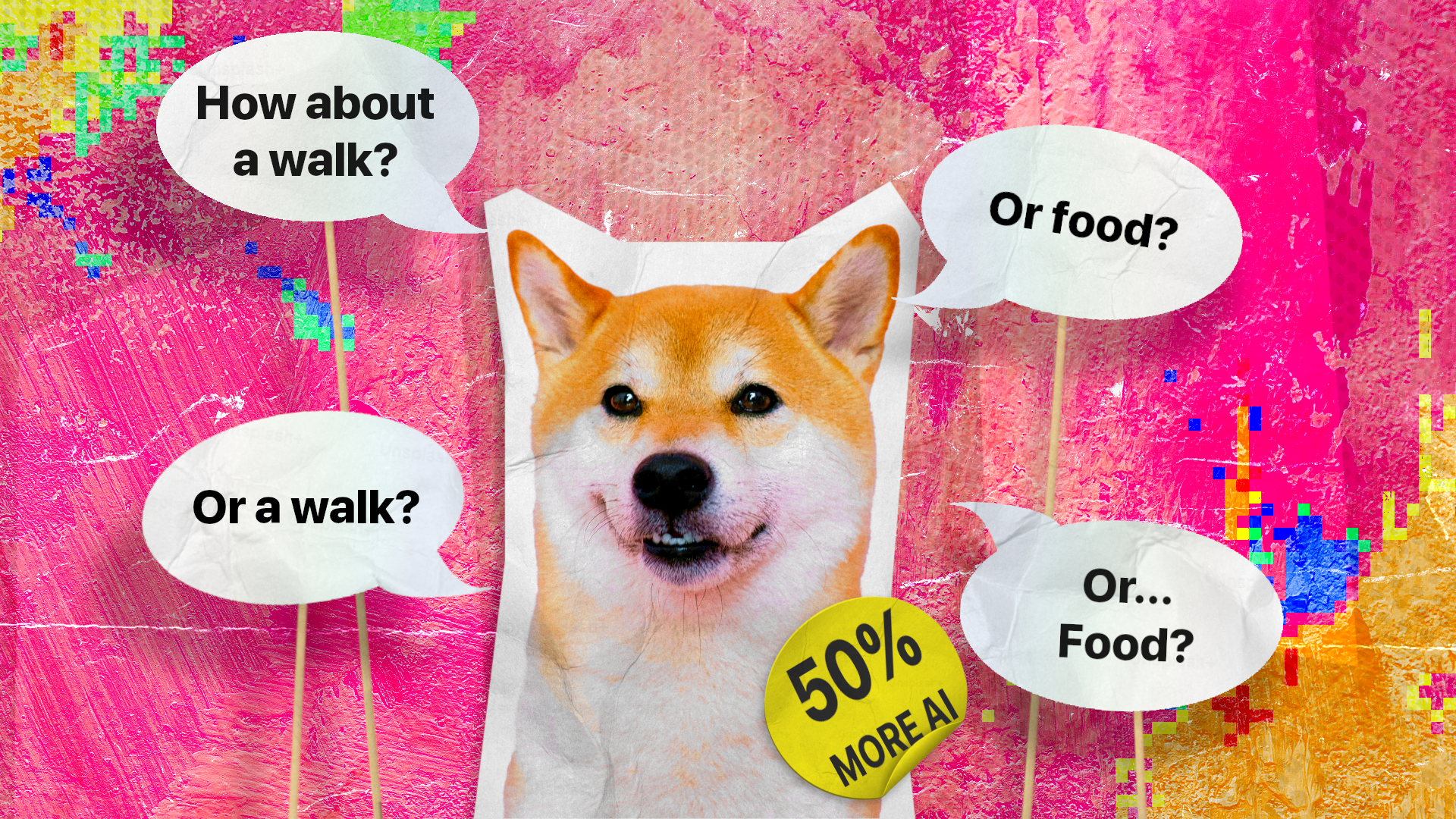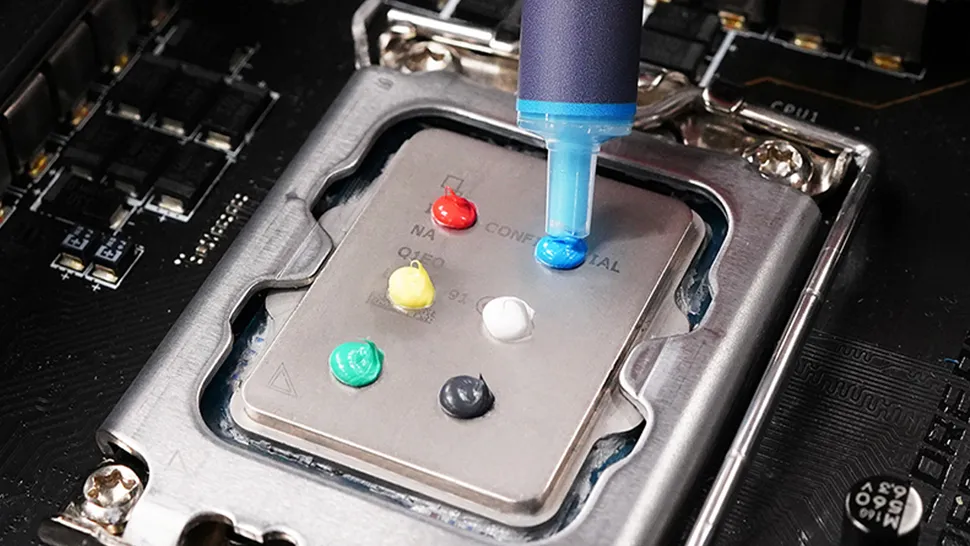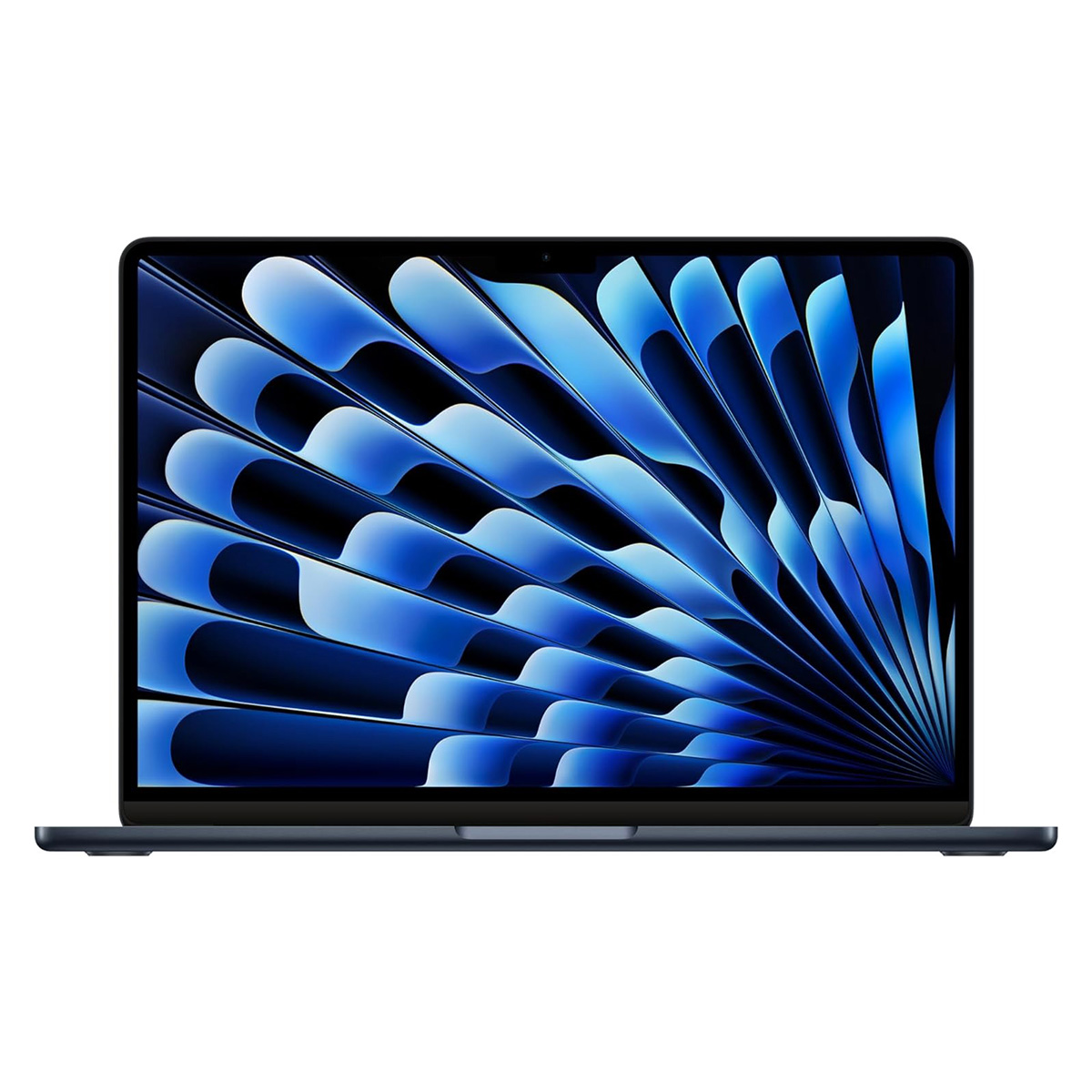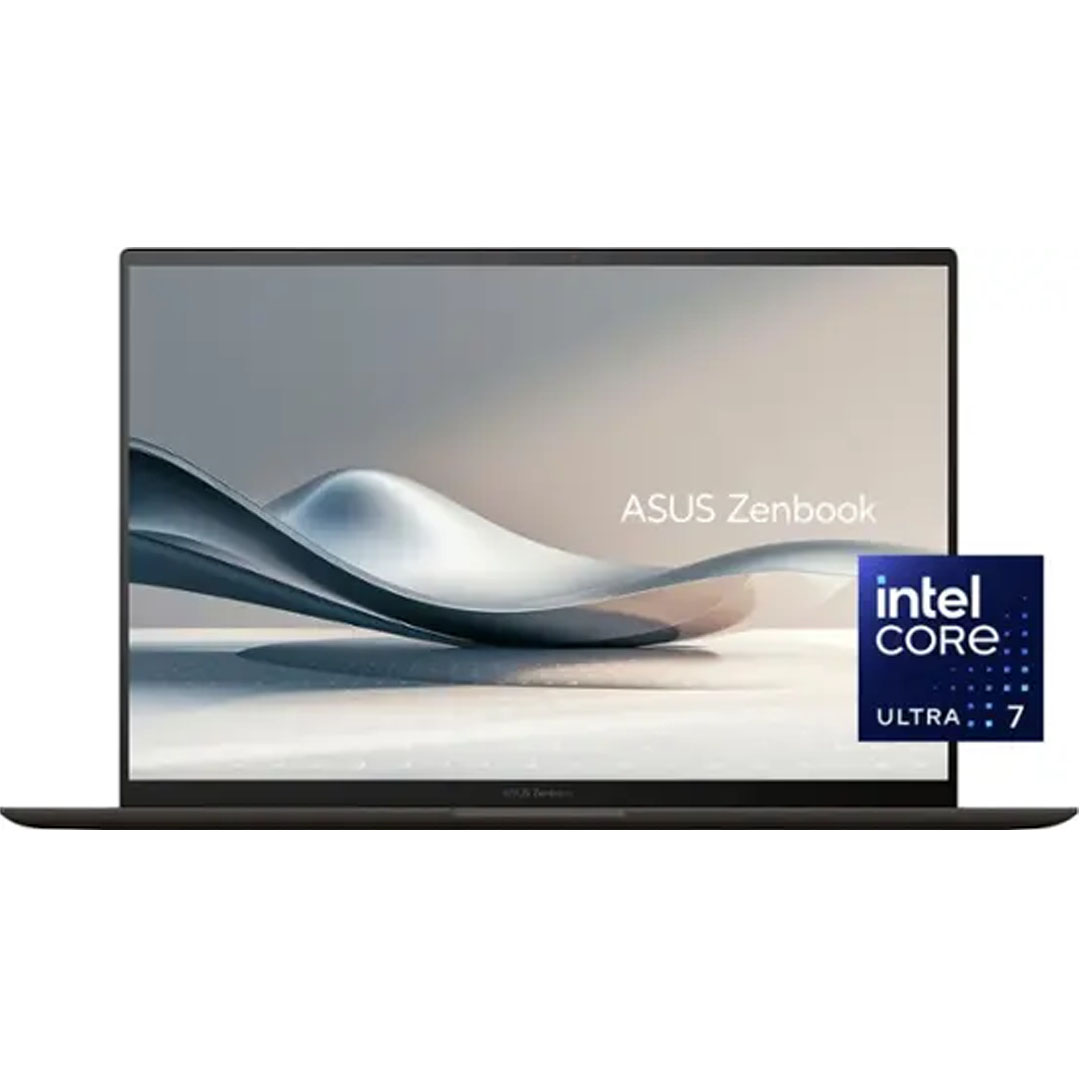
If you ever wished your dog had a high-tech collar that allowed it to talk like Doug from Pixar's Up, you're in luck. Thanks to AI, talking pets is practically a reality.
Among the deluge of AI-infused tech released this year was the Shazam Band, a collar that uses AI to simulate conversations with your pets. It doesn't come cheap, starting at $495 for just one collar. The question is, are there actually pet owners willing to pay to have an AI override the personality of their furry friend?
It's hard to find any tech boom quite like the explosion of AI over the past year, but it is reminiscent of the app store boom of the 2010s. With the growing popularity of the iPhone, it seemed like everyone was trying to make the next hit app. The hype even sparked a meme, "There's an app for that," stemming from a viral 2009 iPhone commercial.
Many of us found ourselves downloading flash-in-the-pan apps for everything from gaming to fitness, half of which were probably opened once and forgotten about. Do you need a way to look up a recipe in a flash? There's an app for that. Need to know how long you should cook the perfect steak? There's an app for that. Need to identify that bird in your backyard? Unsurprisingly, there's an app for that too.
In 2024, we saw similar behavior with AI. Over the past 12 months, AI has been embedded into everything imaginable, trying to solve every problem (or non-problem) in every conceivable way. Do you need an AI copilot for the kitchen? There's an AI for that. Want to flash-cook the perfect steak at a thousand degrees? There's an AI for that. Need a way to automatically identify every bird that comes to your feeder during the day? Yes. There's an AI for that.
So many of these products are ultimately doing the same thing: taking an existing service or device and trying to pass it off as something bold and new thanks to an AI chatbot duct-taped to its back end.
Maybe none of these products have emerged as the new "iPhone of AI" because we already have an iPhone of AI. It's called the iPhone. The harsh reality is that, for most AI products, there's an app for that.
The AI boom tried everything, but did any of it stick?
AI has been on the rise for years, but 2024 was the biggest year of the AI boom yet. For the past 12 months, every new product that hit the market seemed to have at least one AI feature to its name.
The Humane AI pin and the Rabbit R1 tried to charm users with pocket-sized, dedicated devices for AI. Shazam tried to appeal to pet parents with a rather uncanny talking pet collar. Microsoft bet big on "Copilot+ PCs" with AI infused in every niche of the user experience. Meta doubled down on wearables with an all-new version of its AI-powered Ray Bans smart glasses. Logitech even launched a mouse with a dedicated AI button.
Some companies even launched completely novel products in creative attempts to get people engaged in the AI hype, like a necklace that acts as a portable AI friend or one experiment that saw AI simulate your future self.
On one hand, this creativity is a mark of innovation. Quirky as many new AI products might be, at the very least they're trying to do something different. On the other hand, amidst this wave of AI-powered tech, many users may still be left wondering: do I really need AI for that?
The interest in AI is genuine, but tech companies may be doing more harm than good by trying to capitalize on it the way they did this year. These products bet on the AI hype being enough to convince people to fork over hard-earned money on products that, more often than not, aren't actually doing anything new.
Even during the app store boom, for every hit app like Angry Birds, there were a million knock-offs and poorly executed cash grabs. The AI boom, it seems, is following suit.

The harsh reality about AI products
Despite new products hitting the market with virtually every approach to AI imaginable, nothing has yet emerged as the "iPhone of AI." The reason may be that the average user has grown... tired.
Users' casual curiosity about the possibilities of AI has given way to a wave of eclectic AI products diluting the impact of the term "AI" and leaving many consumers feeling overwhelmed or perplexed by AI-powered products solving problems that might not actually exist.
The term "AI fatigue" emerged online early this year amid this barrage of new AI products. Every day users are becoming exhausted by the never-ending flow of products banking on one AI gimmick or another. As one Reddit user put it, "I want the things that exist, to be better. Not be inundated with AI plug-ins."
Why pay hundreds of dollars for a device like the Rabbit R1 or the Humane AI pin when there's an app that can do the same thing for free? Why buy a mouse with a dedicated AI button when you can tap the app icon on your phone? Why bother paying $500 for a talking dog collar when you could have a dozen AI algorithms generate cute lines of dialogue for your pet using any number of free apps?
What users really need (and want) are AI apps that are more accurate, more trustworthy, and better at doing the tasks they're advertised for, whether that's writing emails or answering basic search queries.
The AI gold rush has produced its share of fool's gold, and consumers deserve better. Ultimately, plastering the "AI" label on a pricey product that could have been an app doesn't make it artificially intelligent, just artificially important.

If you're anything from an AI enthusiast to the average AI tinkerer (or simply seeking out some of the additional features offered through Windows Copilot+ PCs or Apple Intelligence on Macs), then you'll need a powerful and performative laptop to keep up to speed with your needs.
At Laptop Mag, we review laptops year-round to ensure we're giving you expert-backed and up-to-date recommendations on which notebook is right for you. When it comes to the best AI PC category, our top picks are the excellent Asus Zenbook S 14 (UX5406) for Windows users and the impressive Apple Macbook Air M3 for those running macOS.
So, if you're shopping for a new laptop and looking to invest in an AI PC (or just a great laptop in general), check out our current top-tier picks below.

We love the MacBook Air 13 M3. Starting at just $1,099 (MSRP), with education pricing dropping to $999 (MSRP), the Air is a laptop we can recommend for just about any purpose. It's affordable, especially by Apple standards, and it features an excellent keyboard, fantastic performance, and outstanding endurance (over 15 hours of battery life), which makes it a great laptop for just about anyone's needs, especially those interested in getting to grips with all of the latest Apple Intelligence features.

The Asus Zenbook S 14 (UX5406) has quickly become our favorite AI PC laptop of the year, offering all the hallmarks of a great buy, including exceptional performance and battery life. This laptop is one of the first to feature an Intel Core Ultra 200V series processor and at just $1,499 (MSRP), you get a fantastic balance of power, a stunning 14-inch OLED display, effortless multitasking, NPU-enhanced performance for AI tasks, and all of the additional Copilot+ features available with Windows 11.







